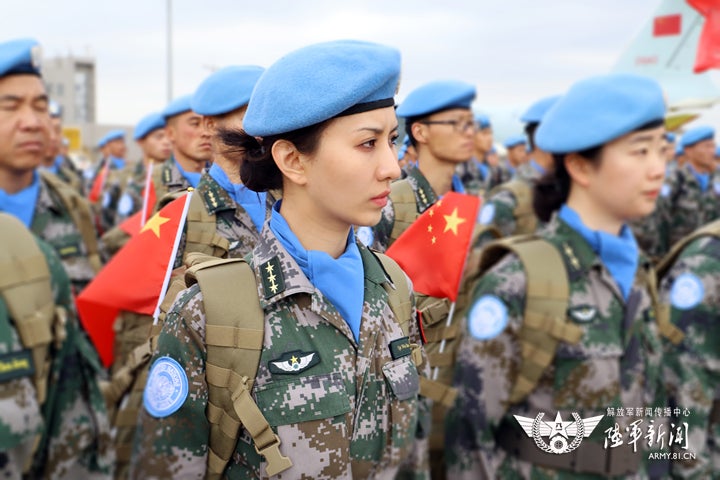Editorial: China’s Peacekeepers
Today, Chinese blue helmets are a common sight in troubled places around the world. As of 21 October 2021, China has 2,256 peacekeepers deployed across the globe, making it the tenth largest UN peacekeeping operation (PKO) contributor in terms of personnel numbers. The PRC is also the second largest financial contributor to UN peacekeeping and its troop contributions dwarf those of other members of the UN Security Council. But how did China get here? Why is China deploying so many peacekeepers?
China’s initial experience with the United Nations had not been the best to put things mildly. Having been denied representation in the UN in favor of the Taiwan-based Republic of China, the PRC would first encounter UN forces as enemies during the Korean War in 1950. Even today when attitudes towards the UN have shifted, Chinese school textbooks recount this episode as a response to American aggression.
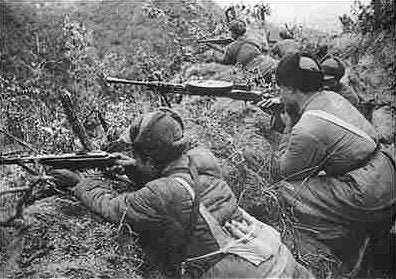
It is thus unsurprising that upon gaining representation in the UN in 1971, the People’s Republic was a strong and vocal opponent of PKOs in any form. In the eyes of Chairman Mao, UN peacekeeping operations were no more than power plays by imperialist powers which aimed to uphold their own national interests. Moreover, if UN peacekeepers were allowed to justify intervention on the basis of human rights or self-determination, who would stop the UN from sending peacekeepers to Chinese-controlled Tibet? This is not to say that early communist China rejected the use of force. Its intervention in Korea was followed by three decades of clashes and short wars with India, Vietnam, Taiwan and the Soviet Union. In these years, limited Chinese personnel and material support made its impact in regional conflicts like the 1960s Congo crisis and the Vietnam war.
After Mao’s death the PRC moved away from active participation in third world and border conflicts; it found itself supporting a policy of nonintervention. Deng Xiaoping’s China remained suspicious of peacekeeping activities as the possibility that they could be used against China always remained in mind. Nevertheless, the country began to warm to the general idea. In the 1980s, Beijing began to pay its dues for international peacekeeping and even chose to vote in support of a number of PKOs. 1990 saw China sending its first observers to a UN peacekeeping mission.
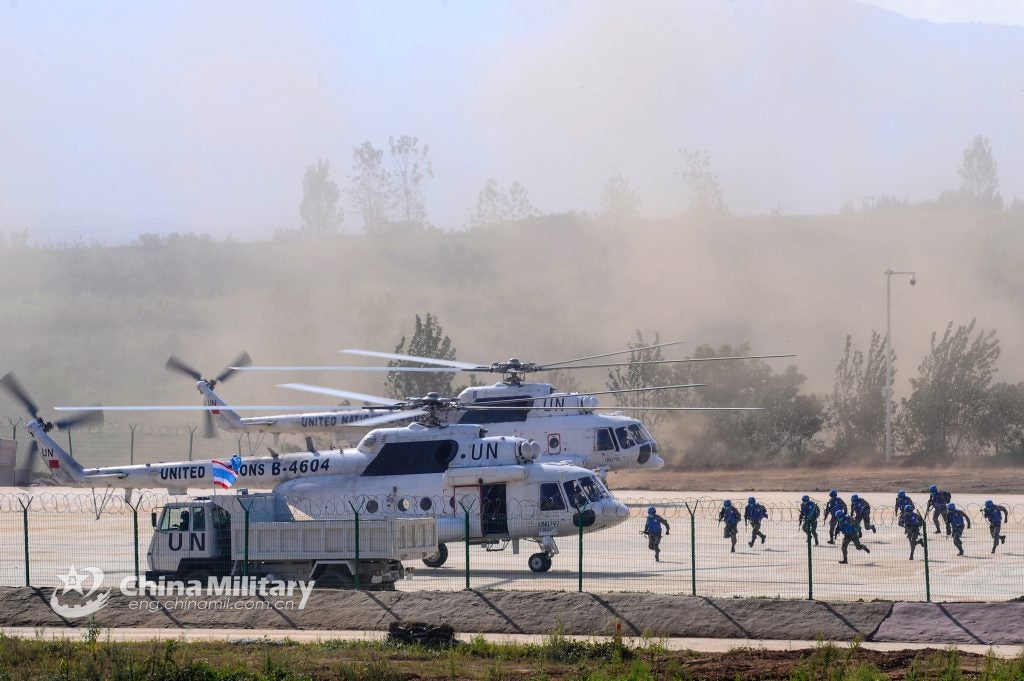
Since 1990, a total of 40,000 Chinese peacekeepers have contributed to 30 UN missions. In 2015, Xi Jinping announcing the China-UN Peace and Development Fund, which had contributed nearly $70 million to peacekeeping projects as of 2020. These developments, as well as the PLA’s peacekeeping white paper released last year, all point to China’s already substantial engagement with UN PKOs continuing to expand. However, this comes with one caveat; while China supports traditional UN peacekeeping missions which aim to act as a buffer between combatants and to deescalate and monitor conflict, it continues to be a strong opponent of any action taken under the guise of “Responsibility to Protect” doctrine. Any attempts at regime change are strongly opposed by Beijing.
But what is the motivation behind these activities? According to China’s white paper on the subject, the PKOs are an extension of the Chinese people’s commitments to international peace and harmony as well as a way in which China is fulfilling its role as a responsible member of the international community. The white paper notes:
“China’s armed forces participate in the UNPKOs, because the Chinese people care about the wellbeing of humanity. The Chinese people always dream of living in a harmonious world where everyone belongs to one and the same family. They advocate that “a just cause should be pursued for the common good” and that one should put concern for the wellbeing of other people before personal interests. They hope for a better life not only for themselves, but also for other peoples across the world. Chinese service members join the UN efforts to bring hope and promote peace. […] With love and humanity, Chinese peacekeeping troops make efforts to bring peace and happiness to people in mission areas.”
There is some truth to be found in this statement; many Chinese citizens and soldiers undoubtedly see their nation’s intentions as benign. It would indeed be unfair for observers to deny that Chinese blue helmets have made at least some contribution to world peace. Nevertheless, bringing aid to the suffering masses around the world should not be seen as China’s main intention.
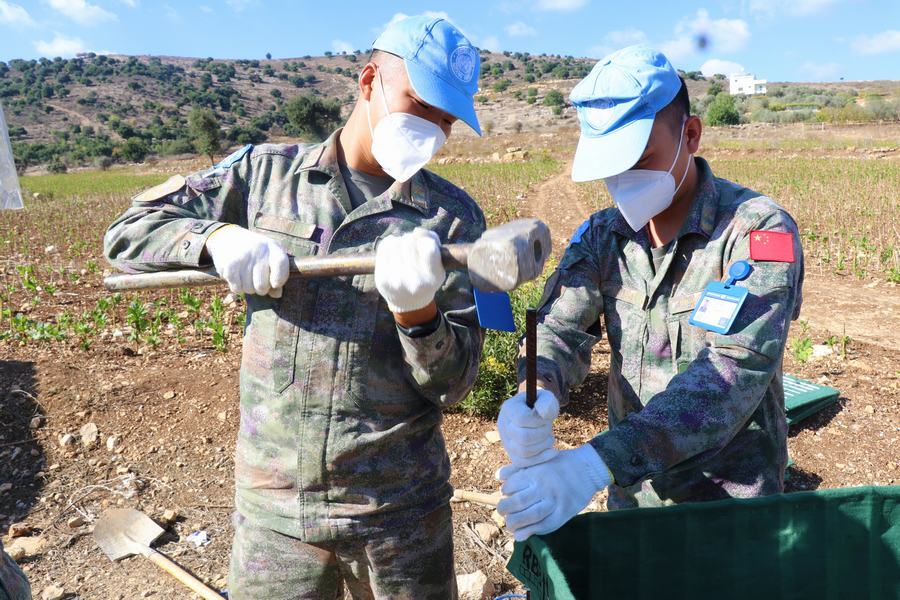
http://eng.mod.gov.cn/news/2021-11/10/content_4898692_6.htm
The most benign benefit to China from its involvement in PKOs is the image they foster at home and abroad (particularly in the third world). China can tout its significant contribution not only to foreign audiences but also to its domestic audience. By sending peacekeepers abroad, the party shows its citizens that the PRC is a strong nation, capable of making a difference in trouble spots around the world.
Perhaps more uniquely to China, participation in PKOs allows the PRC to protect its citizens (something which the Chinese public increasingly expects) and investments abroad and gain some military experience while at the same time avoiding rocking the boat through military action under China’s banner. Few people have heard of China’s blue helmet contingent in South Sudan but alarm bells would have been ringing if a company of marines was deployed to the country under a bilateral agreement. At the same time, avoiding such deployments allows China to continue to claim it refrains from meddling in the internal affairs of sovereign states. Nevertheless, Chinese peacekeepers will most often be found stationed in countries which have received significant investment though the Belt and Road Initiative (BRI) or similar programs and thus have a significant population of Chinese migrant workers.
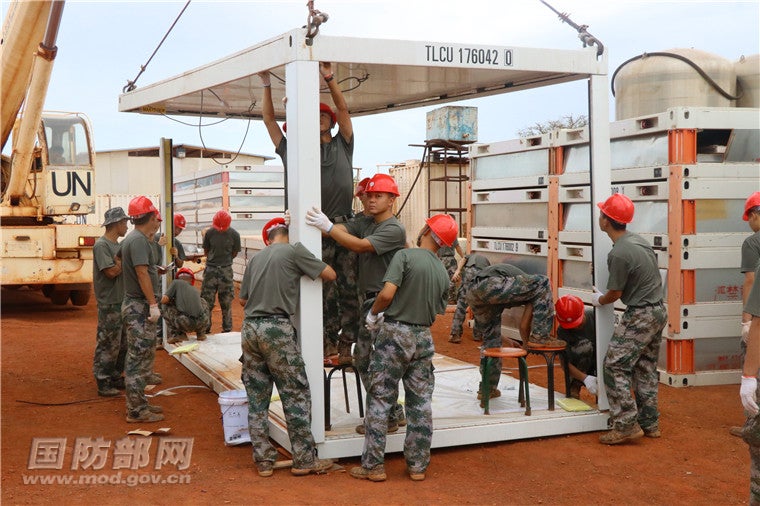
What is also worth noting is that the mission of protecting Chinese lives and investments often takes priority over protecting local civilians. Chinese peacekeeping police played a key role in the evacuation of Chinese civilians from Sudan in 2013 and the country had even pushed through wording which would include the protection of (largely Chinese) oil installations and personnel in the mandate for the UN mission to South Sudan. Chinese peacekeeping personnel also tend to operate under strict rules of engagement unknown to the UN which limit the extent to which national contingents will actually help civilians. In the 2016 fighting in Juba, South Sudan, Chinese personnel strictly defended the UN House and did not act to protect civilians from aggressors even if transgressions were taking place just minutes, or even meters, away. In one widely publicized incident, Chinese and Ethiopian peacekeepers failed to respond to a call for help from the nearby Terrain Hotel. The result was hours of unopposed rape, robbery and a dead journalist. Chinese peacekeepers were not alone in failing to act but one would expect more from such a well-equipped force from a major power.
Another benefit Beijing gets from its major PKO contributions is the ability to influence the UN from within. As Chinese strategy went from opposing international governance to reshaping it to better fit China’s vision, the PRC has sought to gain a leading role in everything from the World Health Organization to the Food and Agriculture Organization. Its peacekeeping contribution can also be seen through this lens.
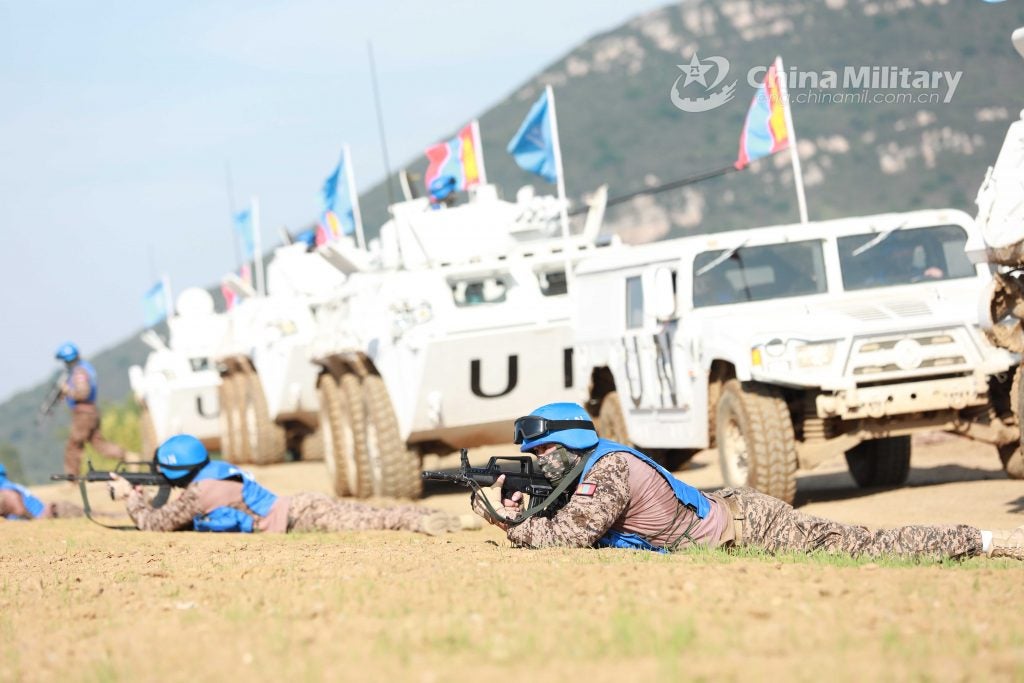
In seven decades, China went from fighting against UN forces to being a key contributor to UN peacekeeping activities. China’s blue helmets undeniably play a humanitarian role but at the same time they advance a number of Chinese national interests. It would be unfair to single out China as unique in seeking self-interested goals through peacekeeping, but with China’s growing global influence and military power, it is important to understand them.
The opinions expressed in this editorial are those of the author and do not necessarily reflect the opinions or views of Overt Defense

